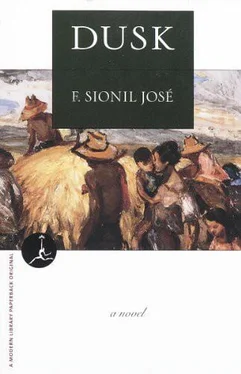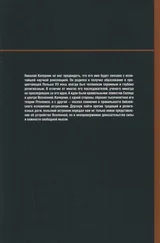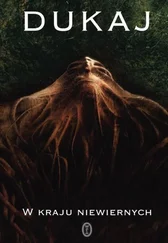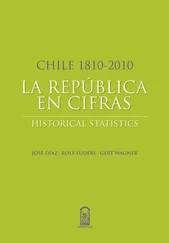Then, the plain narrowed again as the mountain dropped to the sea. An-no had gone miles out in front to check if there was any outpost where they could be challenged. He had returned with the glad news that the road was free. They waited till dark and only then did they come down from a fold in the hill.
The mountains gave way to fields, the plain unfurled. Beyond the bamboo brakes, Istak recognized it at once — Mount Tirad, stabbing the sky like a spearhead. He knew the way not just to Tirad but beyond, and if it had just been the menfolk with him, he would have suggested that they cross over to the valley through the pass. But there were women and children, and a venture into the land of the Igorots without Padre Jose was always dangerous.
Before the day would be over, they would reach Candon.
It was one of the richest towns in the southern portion of the Ilokos. Even from a distance the spires of its magnificent church could be seen in the sunlight. The plains around it swelled with green, and to the left, up the foothills of the Cordilleras, were the ranches. From here, some of the best cattle and horses from the Ilokos were raised. Market days, as in most Ilokano towns, were festive as well. From the villages, the people came to buy their weekly ration of salt, oil, thread, matches, even books — cheap novels in Iloko. Istak loved the days when they sojourned in Candon, particularly the marketplace, where he saw so many goods on display, sometimes even better than those in the market in Vigan.
But the people they were going to see were not in town; they lived close to the foothills. Like Ba-ac, they did not know how to read and write, and they worked the land with diligence, for that was the only thing they knew.
They had been traveling slowly, determinedly, for ten days. The wound in Istak’s chest had completely closed, but it was still painfully sensitive, its edges now hardened with pus which had turned to a scab that would soon fall off.
Every day, at his instruction, Dalin washed the wound with warm water that had been boiled with guava leaves, and her hands were ever gentle. He was still weak. Though he could sit with her in the front of the cart, he could not walk around as much as he wanted to.
They had paused in the shade of a lomboy tree and across the expanse of fallow land were the houses of a sitio where, Ba-ac said, his cousins lived. They had settled in this part of Sur some twenty years ago after one of them married a local girl.
“Do we have to see them, Father?” Istak asked. “And what will we tell them? And how do we explain to them why we do not have with us our house posts?”
“They are relatives, son,” Ba-ac said. “They will understand our silence. They may even help us with provisions that we do not have.”
“Why don’t you go first by yourself, Father?” Istak suggested. “They know you — and then, when everything is clear, we can follow …”
Bit-tik went with his father to the sitio while the men unhitched the bull carts and the women started to prepare the noonday meal.
They would not venture into town, they would never go to places where there were people and, therefore, the Guardia and the priests. Not till they were far, far away from the Ilokos and all its encumbrances.
Ba-ac and Bit-tik returned while they were about to eat a meal of catuday flowers, eggplants, and tomatoes scrounged from the marginal farms they had passed.
“Blas and the others — they are all gone,” Ba-ac said softly. “The houses are there, but they are empty — all three of them. Not one chick, not one piglet left — they must have left within the last two days — there were still fresh ashes in the stoves, and there is no dust on the floors …”
Could they have been ordered away, too? The thought hovered in Istak’s mind. Could they have left because they could no longer endure the harshness of living in the Ilokos?
An-no, who had scouted the way farther ahead, returned in time for lunch. The way was clear and good, and there were no houses close by. Now it was Dalin’s turn to be the guide, to stay in the lead cart — it was she who knew the way, for Candon was the southernmost point that Istak had ever reached.
By nightfall, they were crossing the Tagudin River, and though it was wide, a child could wade through the deepest part. The bull strained over stones. Across the bank, behind a screen of camachile trees, they stopped for the night. They would bathe again, do their washing, and in the morning they would be on their way. They slept well, except for the two men who stood guard quietly, ears alert to every sound; but there were none which presaged danger — just the wind soughing in the grass, the grunt of animals, the stirring of dogs, the murmur of the river as it coursed through, and the distant crowing of cocks.
In the morning, they were surprised to find that three carts had stopped nearby. Istak woke up to Ba-ac’s happy shouts: his cousins were in the carts, and to them he ran, waving his one good hand. It was years since he had seen them last, but memory holds on to images, to joys that were shared.
Ba-ac’s cousins and their wives came to them soon after with their daughters and sons. They were going to the valley, they had left Candon forever, and like those who came from Po-on, they, too, had been ordered to leave their farms.
Now there were ten carts. Istak had his doubts but he kept them to himself; he did not want to hurt his father, to suspect their distant relatives of some future perfidy. Did Ba-ac tell them everything? The reason why they were taking such a tortuous way to the new land? They would soon know, and they would then be afraid. If threatened by the Guardia, they would probably betray Ba-ac.
In afterthought, he need not have worried. He should have simply relied on the Ilokano iron sense of loyalty to friend and family. Istak was particularly happy with his new uncle, Blas, who was a man of words. A big, bluff man, he had been and still was the poet capable of stringing the honeyed phrases that could waylay the most aloof of women. But he was unable to bend to his will a girl from Candon who had come to Po-on to visit. He had followed her to Candon some twenty years or so earlier and in the custom of those who were not favored by either the parents or the object of desire herself, he had served in her household, working the land as a farmhand with no pay at all, except for his meals. He slept below the granary, apart from the house and close to the work animals — for he was almost treated as one — and for a year ingratiated himself with the girl’s family, returning on occasion to Po-on to be the object of jokes from Ba-ac and all his relatives, why with his silver tongue he was not able to convince a simple girl to accept him after a few days.
His uncle’s tenacity surprised Istak no end, but he knew also that he would have done this for Dalin if she were still the same unfeeling creature she had been in the beginning.
Just the two of them, Blas with big, handsome words rolling out of his mouth without effort, and Istak full of questions. It was one of those early evenings when the meal was done, the animals fed and safely herded, and the women had long since extinguished the cooking fires.
“I have known how it is to snatch a field from the forest,” Blas said quietly. They had left the riverbed and were up the brow of a hill beyond which the narrow plain would unroll again. “That was what surrounded Candon when I first went there. It was hard work which drained the body of its juices and numbed the mind to dreams. Dreams that what we had carved out of the wilderness would be ours — but it would not be. Always, wherever we, the little people, will go, there will be those with more strength than us who will wrest away what we thought was our own.”
Читать дальше












